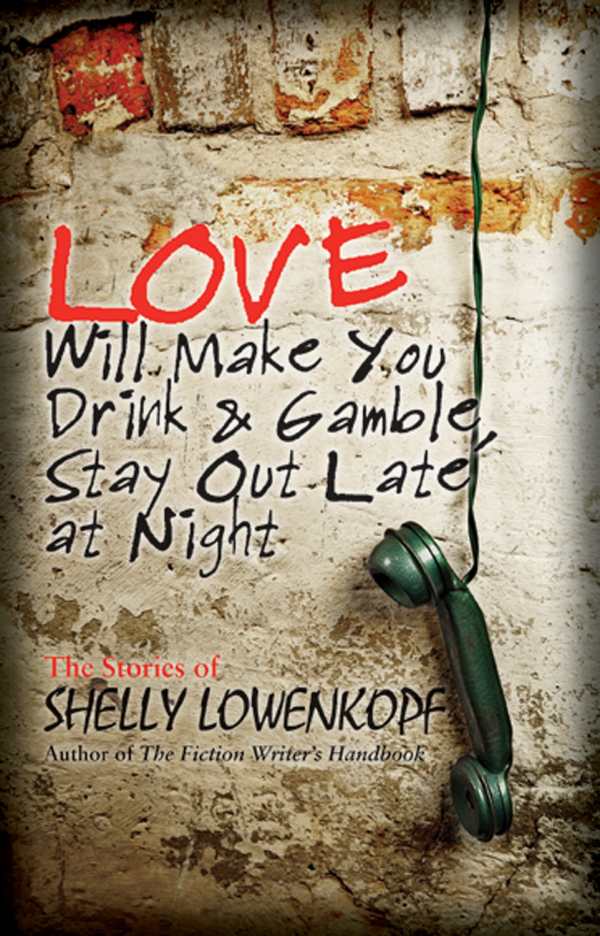Love Will Make You Drink and Gamble, Stay Out Late at Night
Premise, mood, and longings merge in an intimate way to reveal profound things about relationships.
Set in Santa Barbara, California, the twelve stories in Love Will Make You Drink and Gamble, Stay Out Late at Night revolve around love and, perhaps more accurately, desire—for another person, a connection, a dog. Lowenkopf writes of the little quickenings of desire and where they lead, showing that a short story, well rendered, can be intensely satisfying, a kind of perfect bite.
Lowenkopf, author of two novels and two guides to fiction writing, is a writing professor and has served as an editorial director for a number of different presses. His years of literary experience show in the ease with which he writes about relationships, charting people through connection and disconnection.
The collection starts with “The Ability,” about a young woman hired to write letters for a university. Her ability to write the perfect emotional letter leads to unforeseen abuse of its power. This story begins the collection with a focus on what gets people to respond as they do, an attention to the nuance of emotional manipulation and response. “Mr. Right” picks that up as a lesbian couple tries to convince a man to become a part of their dreams for a baby. In “Witness Relocation Program,” a famous actor uses a dog to ingratiate himself to the locals, based on the advice of a therapist. Only after something goes horribly wrong does the actor come to realize the therapist’s greater plan. The book ends with an academic being sent to a therapy group because of the number of his students having emotional breakdowns.
For each story, Lowenkopf conceives of an intimate situation and then lets his characters play out their longing. The stories resist expectation, and many have a kind of whimsy to them, like the sanity dinner: “For Langer, a sanity dinner was a ritual to be indulged at times of greatest need, when things got out of hand, when the pleasures in the small routines of learning and observation were threatened by the universe, advancing with muddy shoes over the carpeting of individual satisfaction.”
The characters often dream of love, of change, of some kind of acknowledgment; and sometimes they get it, sometimes they don’t. Never sentimental, Lowenkopf gives quick cinematic portraits of people in flux, characterizing them with intelligent dialogue and decisions with real consequences.
For fans of the short story, this cohesive, smart collection is a worthy addition to other writers of the relationship, from Raymond Carver to Lorrie Moore.
Reviewed by
Camille-Yvette Welsch
Disclosure: This article is not an endorsement, but a review. The publisher of this book provided free copies of the book to have their book reviewed by a professional reviewer. No fee was paid by the publisher for this review. Foreword Reviews only recommends books that we love. Foreword Magazine, Inc. is disclosing this in accordance with the Federal Trade Commission’s 16 CFR, Part 255.

